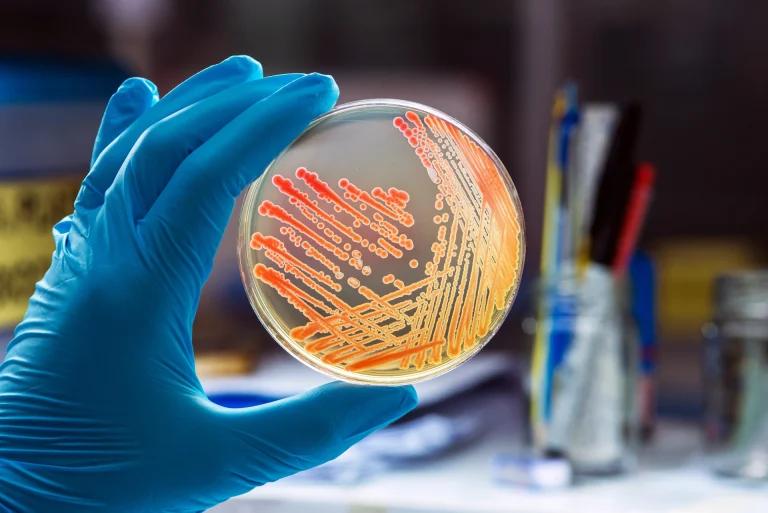
Escherichia coli, more commonly known as E. coli, is a group of bacteria that can cause a range of infections in the human body. While most strains of E. coli are harmless and even beneficial, some can lead to severe gastrointestinal issues, urinary tract infections, and in rare cases, life-threatening complications. One of the primary concerns for individuals who contract an E. coli infection is how long the illness will last and the impact on their overall health.
In this article, we will look into the various aspects of E. coli infections, including the typical timeline of symptoms, and the factors that influence the duration of the illness.
Understanding E. coli infections
What is E. coli?
E. coli is a bacterium that is present in the feces of healthy people and other animals as it lives naturally in the intestines of humans and animals. While the majority of E. coli strains are harmless, certain strains can cause significant health problems when they enter the body through contaminated food, water, or other means.
The most well-known and potentially dangerous strain of E. coli is the O157:H7, also known as Enterohemorrhagic Escherichia coli (EHEC). It can produce a powerful toxin called Shiga toxin. This toxin can damage the lining of the small intestine, leading to severe illnesses such as bloody diarrhea, stomach cramps, and in some cases, a life-threatening condition called hemolytic uremic syndrome (HUS).
Types of E. coli infections
E. coli infections can manifest in various forms, depending on the specific strain and the location of the infection within the body. Some of the most common types of E. coli infections include:
- Gastrointestinal infections: These infections typically cause symptoms such as watery diarrhea, abdominal pain, and in some cases, vomiting
- Urinary tract infections (UTIs): E. coli can also infect the urinary tract, leading to symptoms like pelvic pain, a burning sensation during urination, and an urgent need to urinate
- Blood infections (sepsis): In rare cases, E. coli can enter the bloodstream and cause a serious condition known as sepsis, which can be life-threatening if not promptly treated
- Other infections: E. coli can also cause infections in the prostate, gallbladder, and even the meninges (the protective membranes surrounding the brain and spinal cord)
Symptoms of E. coli infections
The specific symptoms of an E. coli infection can vary depending on the type and severity of the infection. However, some of the most common symptoms include:
- Diarrhea (ranging from mild and watery to severe and bloody)
- Abdominal cramps and pain
- Nausea and vomiting
- Loss of appetite
- Low-grade fever
In the case of a urinary tract infection, symptoms may include:
- Pelvic or abdominal pain
- Burning sensation during urination
- Frequent urination
- Cloudy or foul-smelling urine
It’s important to note that the onset of symptoms can range from as little as a few hours after exposure, to up to 10 days, depending on the strain of E. coli and the individual’s immune response.
Causes of E. coli infections
E. coli outbreaks are typically caused by contaminated water and food. Some of the most common sources of E. coli exposure include:
- Undercooked meat: E. coli can be present in the intestines of cattle and can transfer to ground beef during the slaughtering and processing stages
- Unpasteurised dairy products: Raw milk and unpasteurised cheese, cider, and juice can harbour E. coli bacteria
- Unwashed fresh produce: Raw fruits and leafy greens, in particular, can contain traces of E.coli bacteria
- Environmental exposure: Contact with farm animals, petting zoos, or drinking water from recreational water sources (such as swimming pools or lakes) contaminated with E. coli can also result in transmission
- Person-to-person transmission: E. coli can spread from an infected individual to others, especially if proper handwashing and hygiene practices are not followed
How long do E. coli symptoms last?
The duration of E. coli symptoms can vary significantly, depending on the type of infection and the individual’s response to the illness.
- Gastrointestinal infections: Symptoms typically last between 5 to 7 days for most people, but can range from 2 days to 2 weeks. In severe cases, such as those involving the Shiga toxin-producing E. coli (STEC) strain, symptoms may persist for longer, leading to complications like hemolytic uremic syndrome (HUS)
- Urinary tract infections (UTIs): E. coli-related UTIs can resolve within a week with appropriate antibiotic treatment. However, without treatment, the infection may linger for several weeks or even months, leading to recurring symptoms
- Bloodstream infections (sepsis): The duration of a bloodstream infection can vary greatly, depending on the severity of the illness and the individual’s response to treatment. In some cases, sepsis can be life-threatening and require immediate medical intervention
Factors that affect how long E. coli infections last
Several factors can influence the duration and severity of an E. coli infection, including:
- The strain of E. coli: The specific strain of E. coli responsible for the infection can significantly impact the duration and severity of the symptoms. Shiga toxin-producing strains, such as E. coli O157:H7, are more likely to cause severe and prolonged illnesses such as kidney failure
- Immune system response: Individuals with a strong, healthy immune system are generally better equipped to fight off E. coli infections, leading to shorter term symptoms. Those with weakened immune systems, such as the elderly, young children, or individuals with chronic health conditions, may experience longer-lasting and more severe infections
- Prompt medical treatment: Seeking medical attention and receiving appropriate treatment, such as antibiotics for UTIs or supportive care for gastrointestinal infections, can help to reduce the duration and severity of E. coli-related symptoms
- Underlying health conditions: Certain pre-existing medical conditions, such as diabetes, inflammatory bowel diseases, or chronic kidney disease, can increase the risk of complications and prolong the duration of an E. coli infection
- Exposure level: The amount of E. coli bacteria an individual is exposed to can also influence the severity and duration of the infection. Higher levels of exposure are more likely to result in more severe and prolonged symptoms
Treating E. coli infections
The approach to treating E. coli infections can vary depending on the type and severity of the infection:
- Gastrointestinal infections:Mild cases: Often, no specific treatment is required, and the infection resolves on its own within a week.Severe cases: Hospitalisation may be necessary to provide supportive care, such as intravenous fluids to prevent dehydration.
- Antibiotics are generally not recommended for Shiga toxin-producing E. coli (STEC) infections, as they can increase the risk of complications like hemolytic uremic syndrome (HUS).
- Urinary tract infections (UTIs):Antibiotics, such as trimethoprim/sulfamethoxazole, ciprofloxacin, or nitrofurantoin, are typically prescribed to treat E. coli-related UTIs.The duration of antibiotic treatment can range from 3 to 7 days, depending on the severity of the infection.
- Bloodstream infections (sepsis):Prompt antibiotic treatment is crucial for managing E. coli-related sepsis, as the condition can be life-threatening.Intravenous antibiotics, along with supportive care measures, are the standard treatment approach.
It’s important to follow the healthcare provider’s instructions and complete the full course of any prescribed antibiotics to ensure the effective treatment of the E. coli infection and to prevent the development of antibiotic-resistant strains.
Preventing the spread of E. coli Infections
To help prevent the spread of E. coli infections, it’s essential to practice good hygiene and follow food safety guidelines:
- Handwashing: Wash hands with warm soapy water, especially after using the restroom, changing diapers, or handling raw meat
- Food preparation and food handling: Cook meats, particularly ground beef to an internal temperature of at least 160°F (71°C). Avoid cross-contamination by using separate cutting boards and utensils for raw and cooked foods. Wash all fresh produce thoroughly under running water
- Avoid unpasteurised products: Steer clear of unpasteurized milk, juice, and other dairy products, as they may harbour E. coli bacteria
- Disinfect surfaces: Clean and disinfect surfaces that may have come into contact with E. coli, such as countertops, cutting boards, and bathroom fixtures
- Stay home when sick: If you have an E. coli infection, avoid preparing food for others and stay home from work or school until your symptoms have resolved
By taking these preventive measures, you can help reduce the risk of contracting or spreading E. coli infections within your community.
When to seek medical attention
You should seek medical attention if you experience any of the following:
- Diarrhea that lasts for more than 3 days
- Severe or bloody diarrhea
- Frequent vomiting or an inability to keep fluids down
- Fever higher than 103°F (40°C)
- Symptoms of dehydration, such as excessive thirst, dizziness, or decreased urination
- Symptoms of a urinary tract infection, such as pelvic pain or a burning sensation during urination
- Any other concerning symptoms or signs of a potentially serious complication
Early medical intervention can help manage the infection, prevent complications, and ensure a faster recovery.
Conclusion
E. coli infections can range from mild and self-limiting to severe and potentially life-threatening, depending on the specific strain and the individual’s response to the infection. Understanding the duration of E. coli symptoms, and the factors that influence the course of the illness can help individuals navigate these types of infections more effectively.
By practicing good hygiene, following food safety guidelines, and seeking prompt medical attention when necessary, individuals can reduce their risk of contracting E. coli and minimise the impact of the infection on their overall health and well-being.
Sources
NowPatient has taken all reasonable steps to ensure that all material is factually accurate, complete, and current. However, the knowledge and experience of a qualified healthcare professional should always be sought after instead of using the information on this page. Before taking any drug, you should always speak to your doctor or another qualified healthcare provider.
The information provided here about medications is subject to change and is not meant to include all uses, precautions, warnings, directions, drug interactions, allergic reactions, or negative effects. The absence of warnings or other information for a particular medication does not imply that the medication or medication combination is appropriate for all patients or for all possible purposes.









